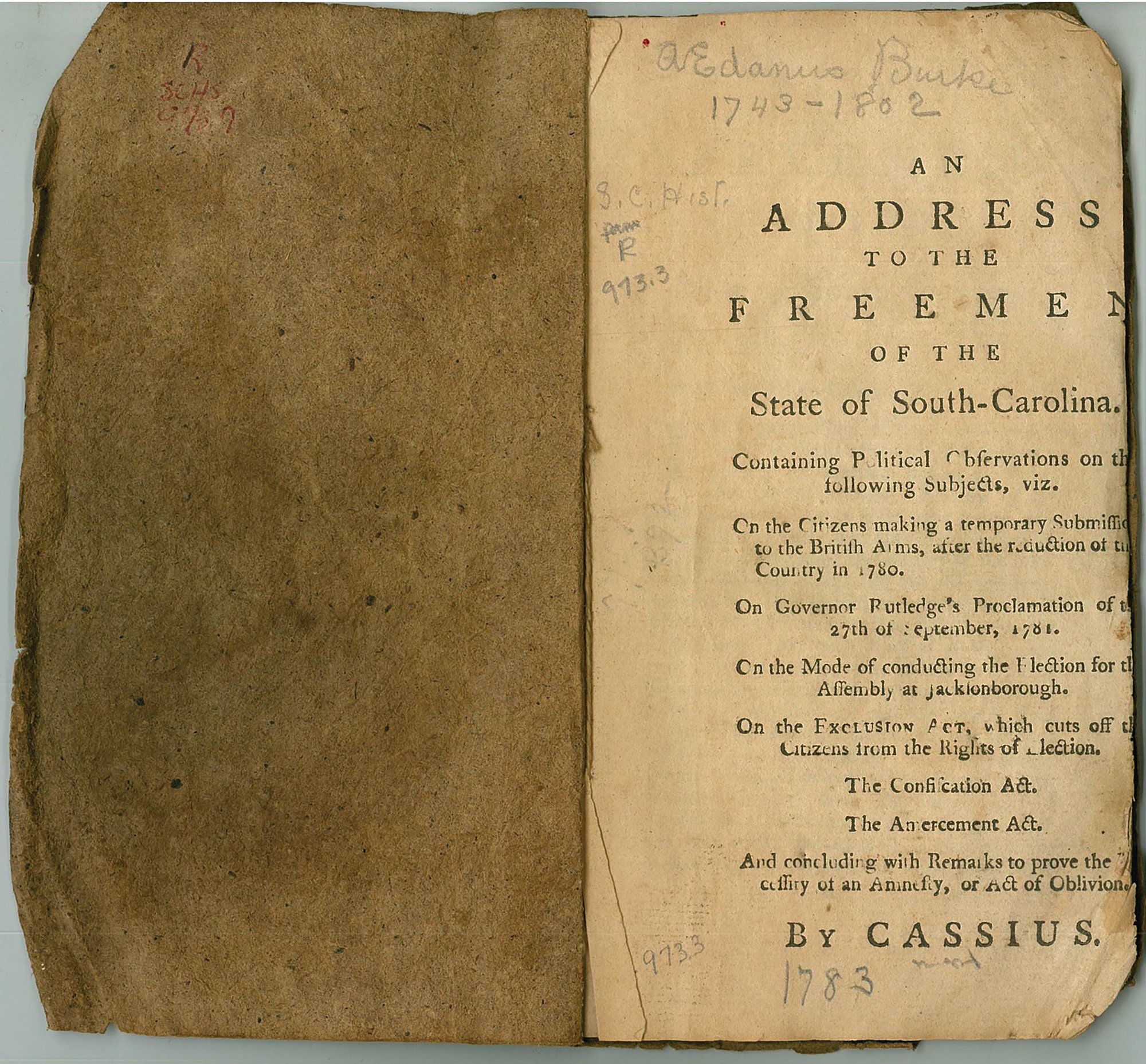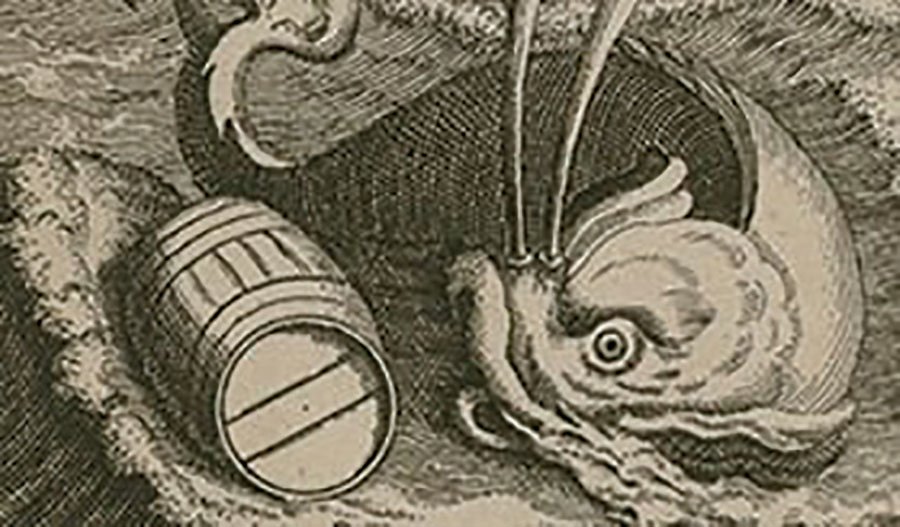This Month in South Carolina History: State ratified the Bill of Rights 230 Years Ago
Writing as "Cassius," representative from South Carolina Aedanus Burke penned this pamphlet in 1782.
During the debates concerning the Constitution, a major issue was the lack of a bill of rights that limited the federal government's power. Federalists, who favored a strong national government, argued that a bill of rights was unnecessary because individual citizens and the states maintained any power not explicitly given to the federal government in the Constitution. Anti-Federalists, who preferred that state and local governments have more control, wanted a bill of rights to protect individual liberty. The first 10 amendments to the Constitution make up the Bill of Rights and were influenced by the English Bill of Rights, the Virginia Declaration of Rights and the Massachusetts Body of Liberties. These amendments, known to most of us, guarantee such rights as freedom of speech, press, assembly and religion.
Some anti-Federalists felt that the Bill of Rights were weak and did not address the underlying problem of the structure of the federal government. One such person was a representative from South Carolina, Aedanus Burke (1743-1802), who described the Bill of Rights as "frothy and full of wind," and said they were like "a tub thrown out to a whale, to secure the freight of the ship and its peaceable voyage." This remark was an allusion to a story by Jonathan Swift about the morals of the English. Burke was born in Ireland, served in the militia of South Carolina during the Revolution and was elected to the First Congress in 1789. In 1782, he produced a number of political writings under the pen name Cassius, including an "Address to the Freemen of South Carolina," where he questioned the legitimacy of the colonial assembly that met in Jacksonborough. He is remembered as an opponent of Alexander Hamilton and served as second to Aaron Burr in his duel with John Church, Hamilton's brother-in-law. Following the Revolution, Burke continued to voice his opinions and openly criticized the Society of the Cincinnati for being an elitist organization that threatened the philosophy of a republican country. Once Congress approved the first 10 amendments, they commissioned 14 copies. President Washington sent a copy to each legislature of the original 13 states, and one copy remained with the federal government. The South Carolina legislature debated the Bill of Rights and voted to ratify them on Jan. 18 and 19, 1790. It was the fourth state to do so, following New Jersey, North Carolina and Maryland. Of the original copies, most are still in state archives, and the federal government's can be seen at the National Archives and Records Administration in Washington, D.C. Four states (Georgia, Maryland, New York and Pennsylvania) are missing copies. North Carolina's copy was stolen by a Union soldier during the Civil War but, with help from the FBI, was recovered in 2003.
More Articles to Read




